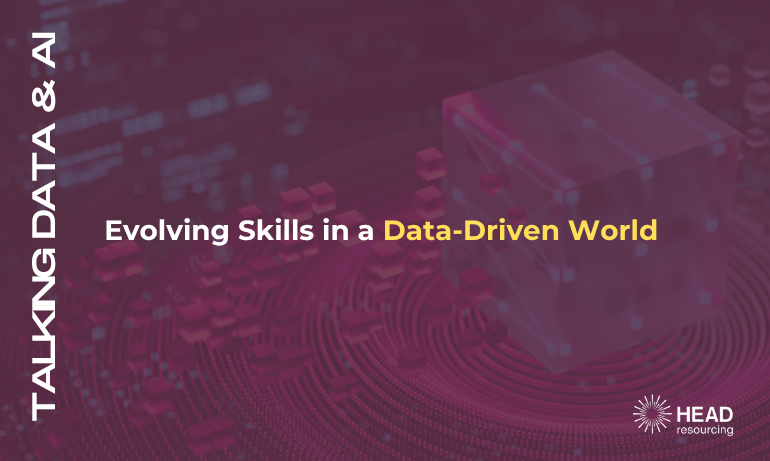Talking Data & AI with Elizabeth Hollinger: The Future of Data Skills
In a Talking Data & AI webinar, Lyle Ritchie was joined by Elizabeth Hollinger, a highly experienced data leader with over 20 years in the field. The conversation explored how data skills, teams and technologies have evolved, and what professionals need to thrive in today’s fast-moving landscape.
Elizabeth began by tracing the history of data, from Florence Nightingale’s early use of data visualisation through to when a computer was able to think critically to beat a human and finally in 2015 to DeepMind’s computer programme AlphaGo beating Fan Hui at one of the most complex games. This journey illustrated a simple truth: the tools and methods may change, but adaptability has always been at the heart of data work. With advances in cloud computing and AI, that adaptability is more essential than ever.
She went on to describe the structure of modern data teams. Alongside established roles in engineering, analysis and governance, new specialisms have emerged such as platform engineering and ML/AI engineering. These reflect the growing demand to scale data platforms, manage cloud infrastructure and embed AI into business operations. Yet with these new roles come skill gaps. Elizabeth shared her experience of addressing them through apprenticeships, graduate recruitment from diverse backgrounds, and upskilling existing staff.
Collaboration was a recurring theme. Embedding software development practices into data projects and working closely with business stakeholders were shown to improve outcomes and adoption. As Elizabeth highlighted, data initiatives only succeed when the insights are trusted, understood and applied in practice.
Continuous learning was another key focus. Elizabeth emphasised the importance of combining on-the-job experience with group study, formal training and participation in professional networks or events. This mix ensures that teams can keep pace with new technologies while developing their expertise in a sustainable way.
Finally, the conversation turned to AI. Rather than replacing professionals, Elizabeth stressed that AI will augment their work. Automation may take away some repetitive tasks, but critical thinking, communication and ethical decision-making remain firmly human skills. She predicted growing demand for ML/AI engineering alongside soft skills such as influence and collaboration.
The discussion made one thing clear: success in data and AI depends on more than technical tools. It requires adaptable teams, continuous learning, strong collaboration and leadership that ensures data is used responsibly and effectively.
